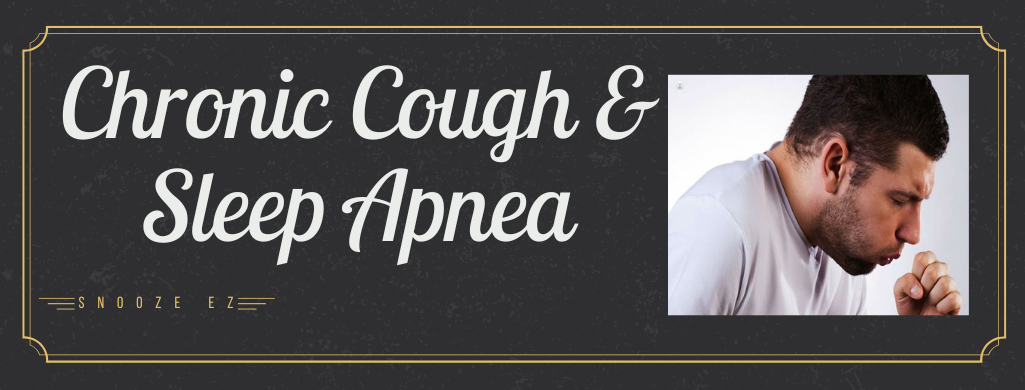Yes, sleep apnea can cause a chronic cough.
Do you suffer from a chronic cough that seems to linger regardless of what you do? Have you seen your doctor but don’t seem to be getting any closer to an answer or relief? If so, it could be possible that you have underlying sleep apnea.
Sleep apnea is a serious sleep disorder wherein a person’s breathing pauses due to obstruction in the airway while they sleep. This can cause many health complications and decrease the quality of life. One such symptom that can manifest itself in people with undiagnosed sleep apnea is a chronic cough.
In this article, we’ll take a look at how sleep apnea can cause a chronic cough, as well as ways to diagnose and treat this condition. If you’re wondering if your mysterious cough could be caused by undiagnosed sleep apnea, read on!
Can sleep apnea cause a chronic cough?
Sleep apnea can definitely cause chronic coughing. Sleep apnea occurs when the airway gets blocked during sleep, resulting in pauses in breathing. This lack of oxygen can cause the body to overcompensate by trying to draw in more air, which can result in coughing. The coughing is usually worse at night, though can continue through the day, and can be a sign of an underlying sleep disorder such as sleep apnea.
According to ERS publications, a study took 108 individuals with obstructive sleep apnea and 33% of them had chronic cough. 61% of them were females. They also had symptoms of GERD and rhinitis. The study also reported that the sole reason for chronic cough can be a result of having obstructive sleep apnea (OSA).
The Cough Journal also did a study. Out of 99 patients who were diagnosed with OSA, 39 (39.4%) of them had chronic cough. Similar to the study above, it was reported that GERD was a contributing factor as well.
Does sleep apnea cause coughing at night?
Yes, sleep apnea can cause coughing at night. As mentioned above, when the airway is blocked during sleep, the body will try to draw in more air which can result in coughing. This can be the main reason why you are waking many times during the night feeling choked or gasping for air.
Most people with sleep apnea don’t just suffer from coughing at night. Other symptoms such as snoring, gasping for air, and feeling tired throughout the day can all be signs of sleep apnea too. If you’re experiencing any of these symptoms, it may be time to consult your doctor about a possible diagnosis.
How is sleep apnea diagnosed?
A doctor will typically diagnose sleep apnea using an overnight test called a polysomnogram (PSG). During the PSG, a patient will be hooked up to monitors which measure their brain waves, heart rate, breathing patterns and oxygen levels while they sleep. This test will provide doctors with valuable information about what is going on inside the patient’s body while they sleep.
If the PSG reveals that a person has sleep apnea, then their doctor will recommend treatment options to help manage the condition. One of the most common treatments for sleep apnea is Continuous Positive Airway Pressure (CPAP) therapy.
Does CPAP help with chronic cough?
Yes, CPAP (continuous positive airway pressure) therapy can help with chronic cough. CPAP is the standard treatment for sleep apnea that involves wearing a special device while sleeping. The device creates air pressure in the throat to keep the airway open and prevent snoring and breathing pauses. Treating sleep apnea with this method also treats, and helps prevent, coughing.
CPAP therapy has been studied for its effect on chronic coughing and it has been found to be an effective treatment for reducing symptoms of chronic cough. A study published in the journal Sleep Medicine found that CPAP therapy was associated with a significant reduction in both daytime and nighttime coughing episodes among people with obstructive sleep apnea and chronic cough.
In addition, another study published in National Library of Medicine also found that using CPAP was associated with an improved quality of life in patients with chronic cough due to OSA.
Conclusion
In conclusion, sleep apnea can cause a chronic cough and should be considered as a potential diagnosis. If you are experiencing a persistent or recurring cough for no obvious reason, it could be due to undiagnosed sleep apnea and should be further investigated. There is evidence that CPAP therapy can help reduce the symptoms of chronic cough caused by sleep apnea. If you suspect that you may have sleep apnea, it is important to speak with your doctor about your symptoms and possible treatment options.
Do adjustable beds help sleep apnea?


